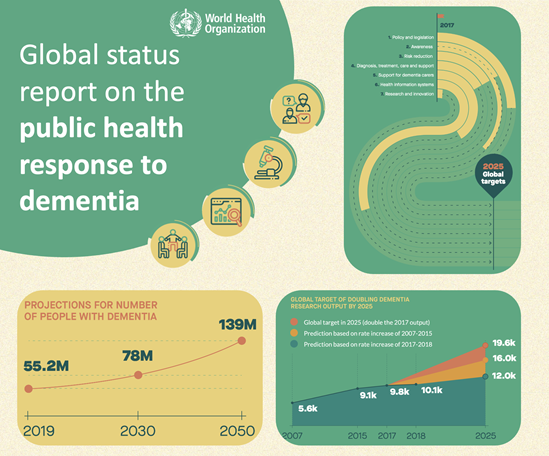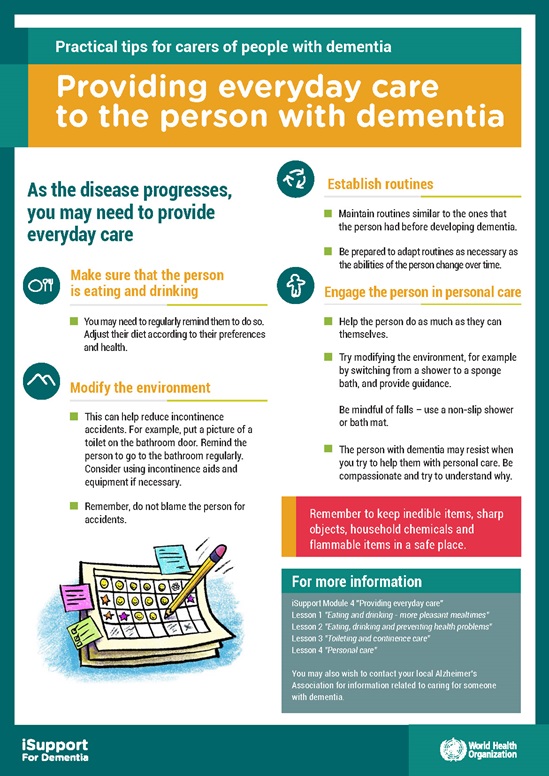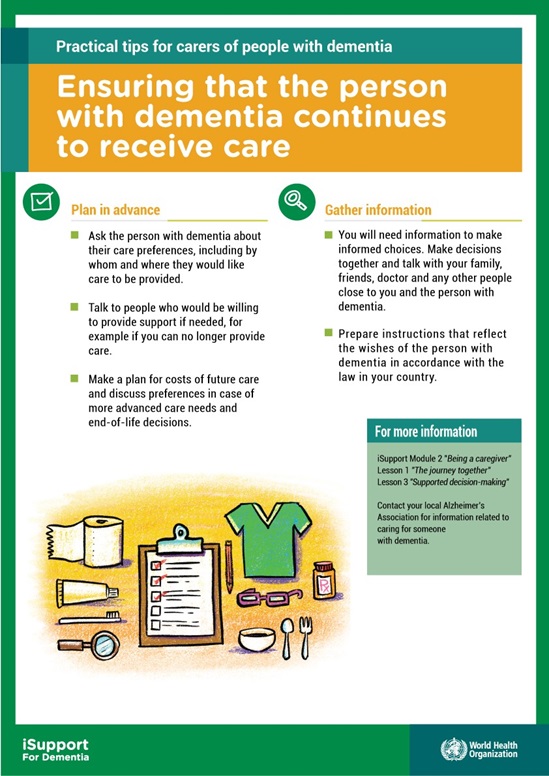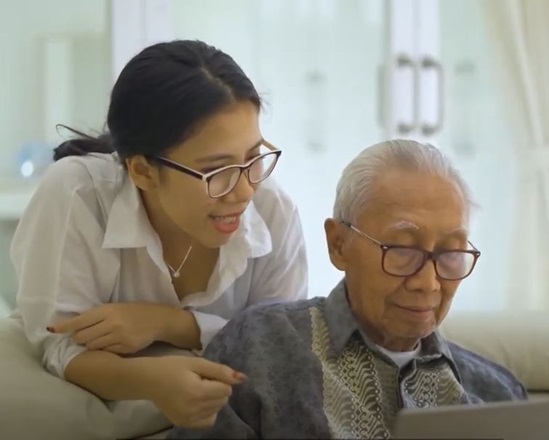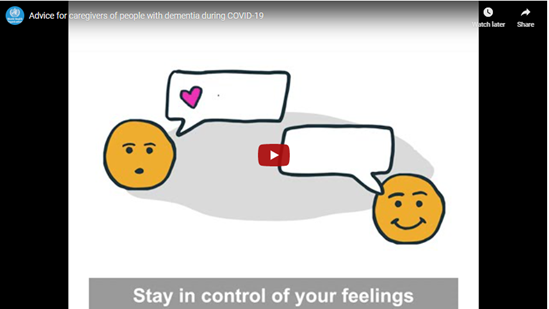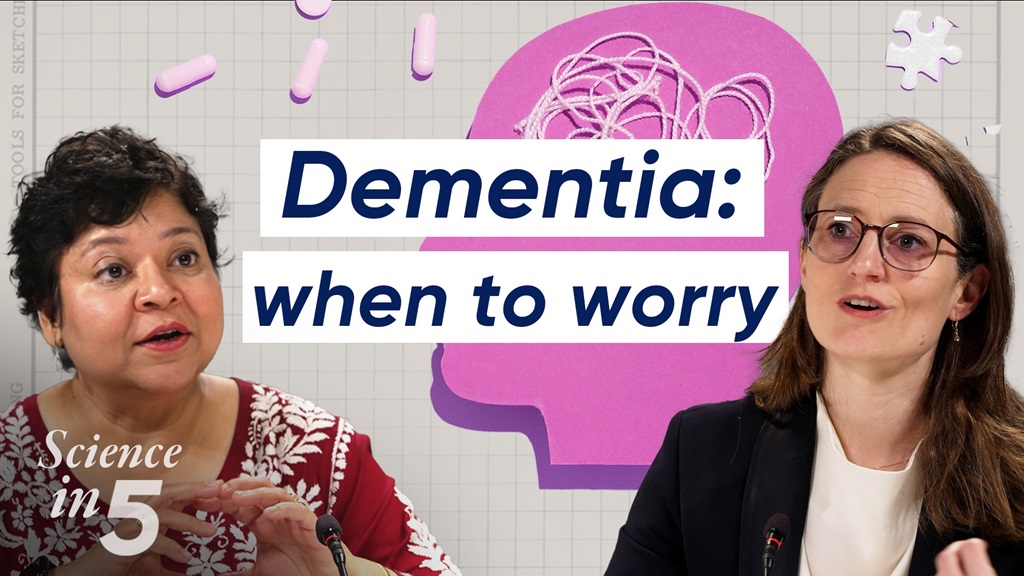VGS Is this, is dementia a normal part of ageing?
KS Research is ongoing into a possible cure, there are things that we can do to reduce our risk.
VGS Are these symptoms I should worry about? There is a condition that will impact all of us in our lifetime, whether as patients or as caregivers. And someone gets this condition every three seconds. We are talking about dementia today with Dr. Katrin Seeher. Welcome Katrin, what are the symptoms of dementia?
KS Well, first of all, dementia is an umbrella term for many different diseases that destroy nerve cells and damage the brain. The most common cause of dementia is Alzheimer disease. Dementia typically leads to memory loss and cognitive decline such as forgetting words, forgetting where you kept things, easily getting lost, or having problems following a conversation, or performing a usual task. Dementia also often occurs with mood or behaviour changes and over time, the symptoms get worse, so that someone who is living with dementia may require more and more help from their family and loved ones to perform daily tasks.
VGS So Katrin, is this, is dementia a normal part of ageing?
KS No, it is not a normal part of ageing. In fact, two in three people in their 90s don’t have dementia. It is a medical condition of the brain and even people in their 40s and 50s can get dementia.
VGS This is a bit concerning because you know, sometimes I’ll come into a room and I’ll forget why I came in there and I’ll often misplace my keys. Are these symptoms I should worry about?
KS Well, not necessarily, we all do forget things from time to time. You might forget where you kept your keys but not knowing what a key is for is a completely different story. Or you might forget why you entered a room because you were distracted or you were multitasking. If you are concerned, speak to your healthcare professional, they can run additional tests and investigate further.
VGS So is there a cure for dementia and what are the treatments available?
KS Well, currently there is no cure for dementia. There are some medicines that help some people to manage their symptoms for a while, but they don’t treat the underlying cause of the dementia. Research is ongoing into a possible cure, but it will be a while before we can deliver those treatments safely and widely. Still, it is important to receive an early diagnosis because that helps you to make sense of the symptoms that your or a family member might be experiencing and then you can plan for the future. And I do encourage everyone who lives with dementia to lead an as active life as possible, physically, mentally and socially, because that will help you to remain independent and maintain good quality of life for longer.
VGS So Katrin, if there is history of dementia in my family, should I be worried that I might get it too? And what can I do to prevent it?
KS Usually, dementia is not passed down within families. But what you might share with family members are conditions that make you more likely to develop dementia. Such as having hypertension or diabetes, or smoking, unhealthy diets or living in an area with high air pollution. Unlike with genes, there are things that we can do to prevent or reduce our risk of developing dementia. What’s good for your heart is good for your brain. So be physically active, eat healthily, treat conditions such as hypertension or diabetes. And the other important message is, throughout life, train your brain and protect it from injuries. So, for instance, learn a new language, meet friends or go dancing. All these activities stimulate your brain and help formulate new and stronger and more connections between nerve cells and ultimately help you fight off disease.
VGS Well thank you very much for sharing that with us, Katrin. Until next time then, stay safe, stay healthy and stick with science.






